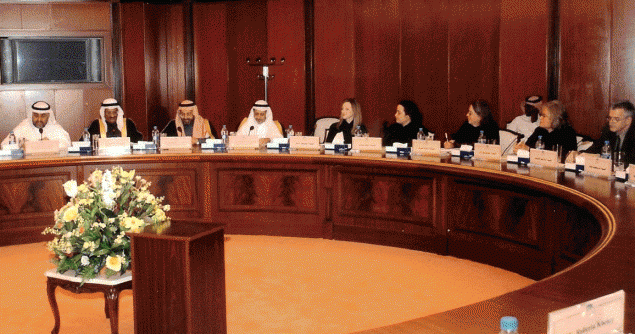‘Real Gains’ Being Made by Women In Saudi Arabia
Saudi women have grabbed international headlines lately, and it is not for being banned from driving or their efforts to defy this ban. From winning Best Film awards in international film festivals, to winning seats on the Shura Council (Saudi Arabia’s parliament), Saudi women are proving their credentials as movers and shakers in a country known for its restrictions on women.
On 11 January, Saudi King Abdullah bin Abdulaziz issued a historic decree allowing women to be members of the kingdom’s previously all-male Shura Council for the first time. The decree stipulated a 20 per cent quota or minimum of 150 seats be filled by women. He then appointed 30 women to join the advisory body which makes recommendations and drafts laws to be presented to the king for approval.
The 30 women who were appointed to the Shura Council are highly qualified and experienced in various fields. They have made their mark locally, regionally and internationally as leaders and pioneers.
This move was not well received by everyone. Even though the decree gave instructions on where the women will be seated in the Shura Council, (segregated from the men with their own door for entry and exit) and how they should be dressed (i.e. veiled) out of respect for the conservative factions in society. Many religious sheikhs still voiced their objection to having women in the Shura, both publicly and to the king. However, their objections are not expected to make a difference given the king made this decision only after consultations with religious leaders in the kingdom.
Saudi women have had a growing number of opportunities during the past few decades such as improved education, confidently pushing their way forward, opening doors and breaking barriers. The 30 appointed women are a case in point. Each one is a success story of determination, reaching esteemed positions in their respective fields of medicine, science, management, literature or international organisations.
For example, one of the 30 women on the Shura Council, Dr Thoraya Obaid, was the first Saudi woman to receive a government scholarship to study in the United States in 1963 and became the first Saudi to head a UN agency, the United Nations Development Fund, from 2000 to 2010.
Thousands of other women have since been on scholarships abroad and there are thousands more on scholarships now who will be returning with degrees in various fields, knocking on employer’s doors and overcoming obstacles. There is high unemployment among Saudi women, including those with post-graduate degrees, because of restrictions on where they can work and the promotions they can achieve due to the fear of gender mixing and moral decay.
Implementing the decision to employ women in retail stores selling women’s clothing and make-up was postponed for years. But when it was finally implemented last year, it opened doors for women, particularly those without college degrees, not only in retail stores but also in restaurants and grocery stores.
Economic realities such as single-income households that are no longer able to maintain a certain standard of living have also helped women’s employment opportunities. Today, more and more young men about to get married prefer a working wife.
In addition, some women’s universities now offer degrees in programs that were previously off limits to girls, such as law, engineering and soon, visual and digital arts. Not that Saudi women waited for these schools to open; some had already taken the initiative and studied abroad, earning degrees that were not available for them in the local universities.
Although the public has become more tolerant of the different artistic expressions of women, whether in film or literature, or on canvas or YouTube, women occasionally face harassment or are forced to stop their work or shut down their exhibitions.
However, renowned Saudi female filmmaker Haifa Al-Mansour’s latest film Wadjda, about a spunky 11-year-old girl who schemes to buy and ride a bicycle despite family and society’s objections was filmed entirely in Saudi Arabia with a Saudi cast. The film was screened at the last Cannes and Venice film festivals to very good reviews and won the Best Film award at the Dubai Film Festival.
Saudi women are asserting themselves in the public sphere and moving forward in their careers with demands for equal opportunity and rights despite the challenges and objections they face. Every success and achievement is a cause for celebration.
Maha Akeel is a Saudi journalist.




You must be logged in to post a comment Login